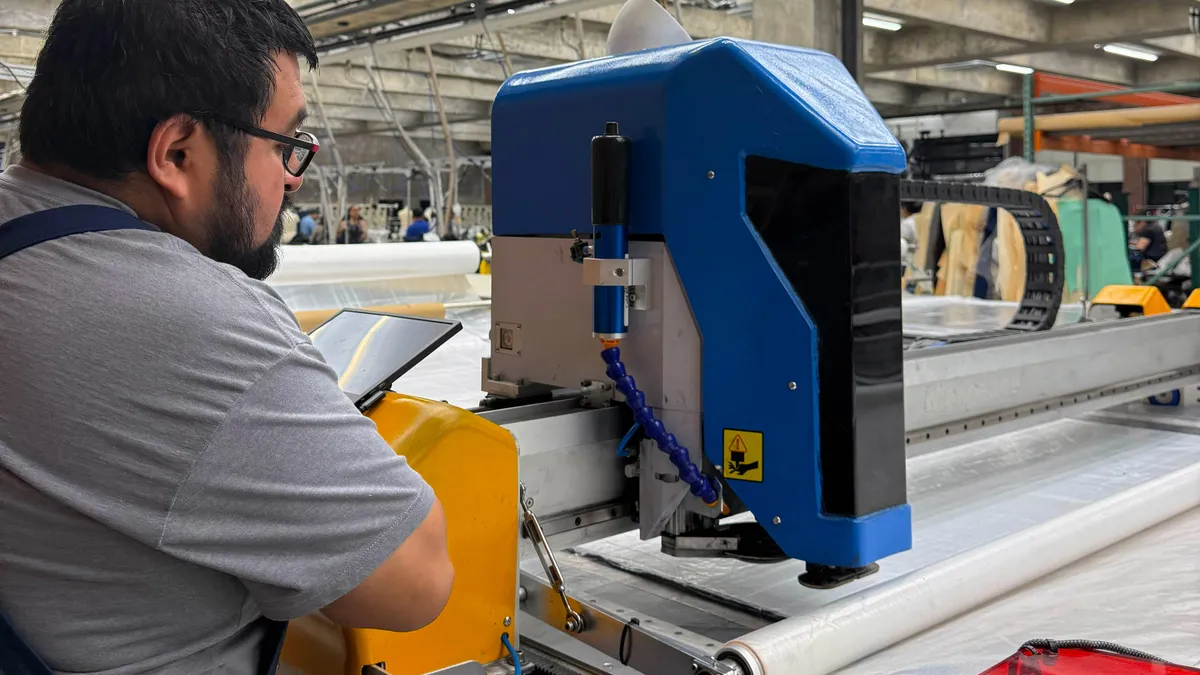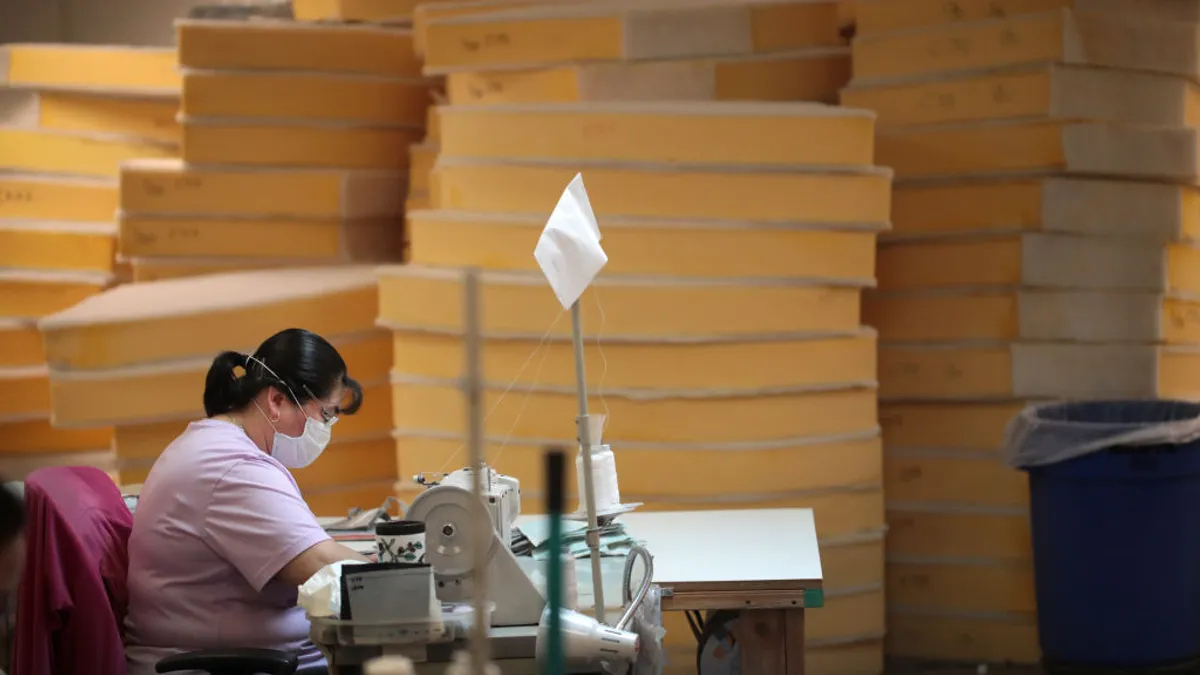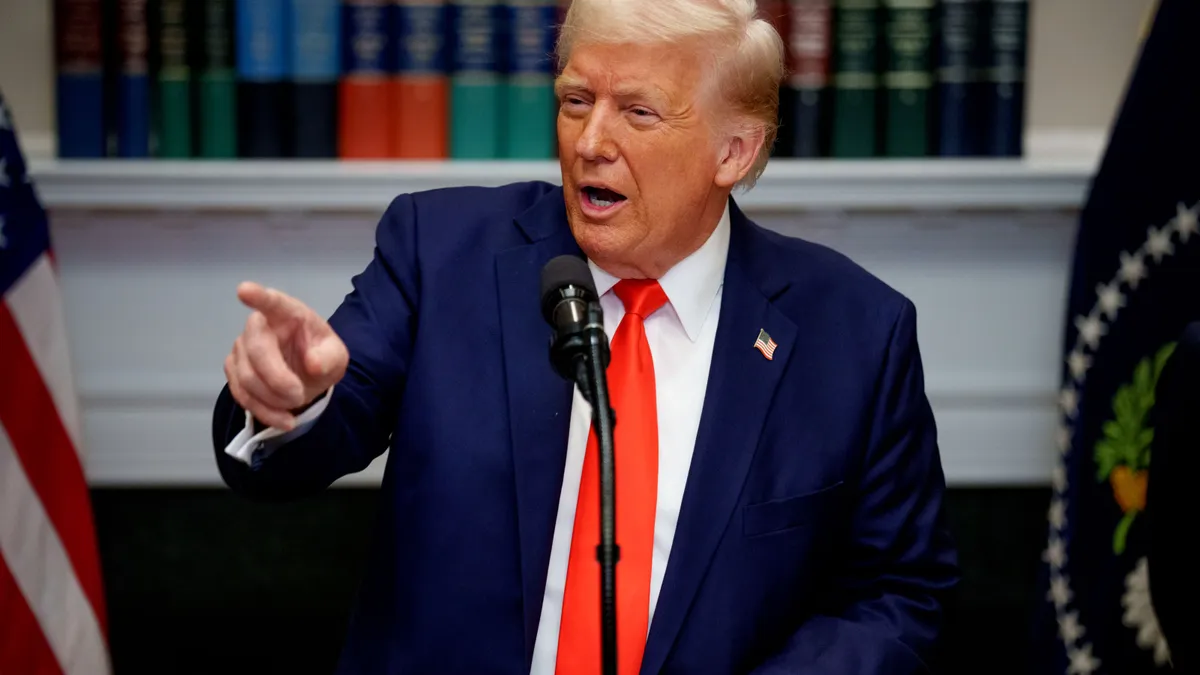Industry observers have long speculated about how heightened tariffs could impact U.S. manufacturers, and whether President Donald Trump's bet that the duties would spur a new era of domestic production would prove true.
Now that the president has imposed a slew of new tariffs, including a 10% baseline tax on all imports, the industry is trying to understand how the policies could impact both supply costs and consumer demand.
Industry groups were mixed in their reactions to the tariffs. Some, like the American Iron and Steel Institute, reacted positively, saying "government action to address this unloading of steel overproduction on world markets is overdue." Others, such as the Plastics Industry Association, pushed for targeted tariffs, rather than across-the-board measures that disrupt supply chains and increase production costs.
For The Partner Cos., a Chicago-based specialty manufacturing firm spanning industries such as aerospace, energy and telecommunications, Trump’s previous tariffs have not had a material impact on the business, said co-founder and co-chair Scott Bekemeyer. However, heightened trade uncertainty has affected some customer demand, with certain orders coming through in smaller volumes than expected or not at all due to a lack of industry visibility.
The administration’s evolving tariff strategy makes it difficult for companies to make significant supply chain shifts, for fear policies could quickly change, Dan Brumlik, co-founder and co-chairman at The Partner Cos., said in the days leading up to what Trump dubbed "Liberation Day” on April 2.
"It's just a very wobbly moment in business," Brumlik said. "It's been stated that this is purely a negotiating strategy to get others to the table for trade talks, and if you set up the system based on tomorrow's tariffs and a month later they change it, how do you respond?"
The Partner Cos., which has manufacturing locations across the U.S., Mexico, China and Wales, is working to offer in-country manufacturing when possible to avoid tariffs, and to give customers as much flexibility as possible.
"We can do Mexico for the world, U.S. for the U.S., China for China, or any combination of those," Brumlik said. "We have redundant capabilities in multiple countries so we can help our customers adapt to whatever the situation is."
Further leaning into their global supply chain is part of The Partner Cos.' strategy to weather the tariff storm, Bekemeyer added. The company is considering more locations both inside and outside the U.S., to avoid tariffs on either side of the border. It's also considering more collaboration with partner manufacturers to leverage each firm's location, with the option to contract manufacture for a foreign-based firm at one of its U.S. locations.
"I don't know that we can outrun the bear, but just be faster than the next guy. Stay close to your customer, listen to what their needs are, understand their end-markets and difficulties. Partner with somebody who has a capability you don't," Bekemeyer said. "Try to find a good solution for the customer, whatever that is."
A ripple effect across complex supply chains
Industry stakeholders say it's likely end-users will bear much of the cost of the tariffs, as manufacturers work to pass on the heightened supply prices spurred by the policies. One sector that could see particular pain is aviation, which relies on complex, global supply chains to serve major manufacturers like Airbus and Boeing.
"Every supplier, every company, public or private, in the aerospace supply chain, is going to be affected either through some portion of higher costs or through some change in buying habits, patterns and volume on their customer side that comes as a result of the higher costs that will ripple through the market," said James Gellert, executive chair and former CEO of RapidRatings International.
The greatest impact, Gellert said, is likely to fall on smaller upstream suppliers that have less access to capital and could face liquidity problems as they attempt to navigate price shocks. Aviation demand may also be impacted as consumer sentiment dips and discretionary travel budgets suffer.
"Because [the aviation industry] is global, it is more susceptible or exposed to the current trade war problems," Gellert said. "Boeing can't just snap its fingers and have its supply chain all domestic as opposed to international. It just doesn’t work that way.”
Issues related to complex supply chains that rely on globally-sourced components could similarly hit the medical device manufacturing industry, said Marcel Botha, CEO and founder at medtech manufacturing firm 10XBeta. With components coming to the U.S. for assembly from all over the world, medical device production supply chains are subject to risks and tariffs for each of those parts.
AdvaMed, one of the country's largest medical device trade groups, publicly opposed the tariffs and pushed the Trump administration to grant the industry an exemption from the tariffs.
And while the Trump administration is pushing to bring those supply chains stateside, Botha said doing so can't be done at the speed manufacturers need.
"Navigating the U.S. state and federal incentives to bring manufacturing back is likely going to frustrate a lot of manufacturers because it doesn't move at the speed that innovation or product delivery timelines have to move at," Botha said. "It typically moves at a political pace or pace of molasses.”




















